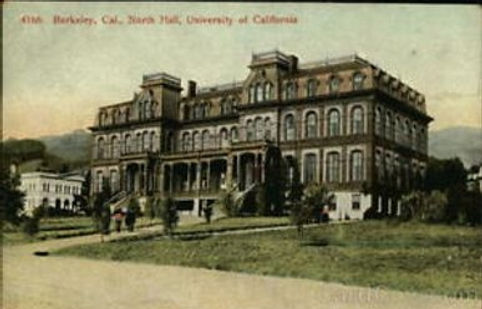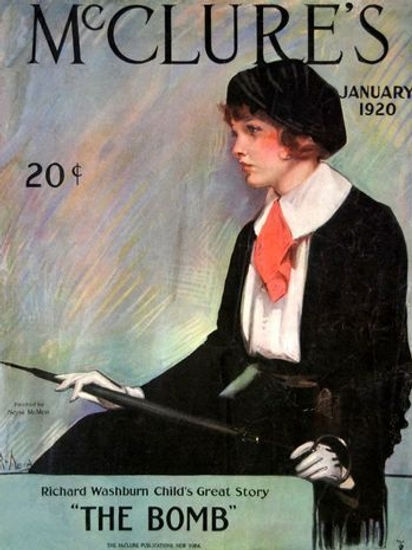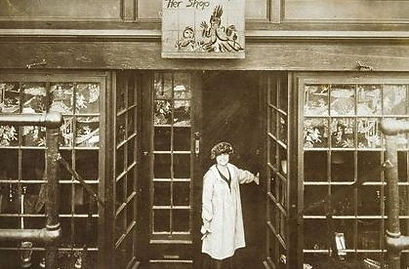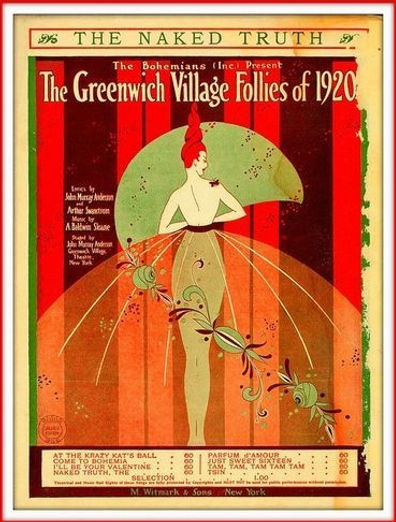


Love - Mary Carolyn Davies
May 2021
This American poet and writer was born in 1888 in Sprague, Washington, just southwest of Spokane. Mary Carolyn Davies emerged from a region that was still wild and perilous within the United States of America. Her life seemed to have followed a similar and, ultimately, tragic path. That likely unplanned objective makes the creation of her poem, “Love”, all the more sublime.
In 1880, Fort Spokane was established northwest of this city by the U.S. Army, at the junction of the Columbia and Spokane Rivers. The mission of this fort was, firstly, to protect the construction of the Northern Pacific Railway; and, after having met that goal, to provide safety to this area for settlement by the people of the United States. By June of 1881, the tracks of the Northern Pacific Railway had attained Spokane. The future settlement of the fertile Spokane Country was thereby assured.
In 1883, gold and silver, discovered in the adjacent Silver Valley of the Coeur d’Alene mountains, brought prospectors, in much the same way that the 49ers had flocked to California. Not all of the treasure-seeking sourdoughs found gold or silver. Dismayed, but determined to make a go of life on this frontier, these men then turned to other work, farming, commerce, lumber, specialist trades, as well as the small businesses that make up the backbone of any region. It is unknown if Davies was born into a family that worked the mines or the fields or a general store. At the age of twelve, she moved with her family to Portland, Oregon. She attended school there, graduating from high school in 1910. Mary then spent a year employed as a teacher in the area around the Crooked River, a tributary of the Deschutes River.


From 1911-1912, Davies attended the University of California at Berkeley. This first land-grant university, established in 1868, “Berkeley” quickly established a fine reputation for the scholarship of arts and letters, long before those arts and letters became trampled under the well-heeled feet of spoiled brats from the 1960s onward. The fact that Mary Davies only spent one year in study at this institute of higher learning does not mean that she was not up to the task of meeting the teachers’ expectations. Far from it.
This “freshman” woman won a prestigious poetry award at this university, the Emily Chamberlin Cook prize. Davies, a woman, also managed to secure a prize from the Bohemian Club, a private all-men’s club of journalists and artists, founded in 1872. She then exited UC-Berkeley and moved to Greenwich Village in New York sometime in 1912 or 1913.
This once-teeming cultural enclave of artists and misfits in New York City became home to this dynamic woman who eked out a living as a writer of short stories and sentimental verse. Her life was dedicated to the art of writing, but she was not always faithful to her muse. Her finished compositions fell into either of two genres: hack material that paid the bills; and bona fide poetry created as art.


Davies received publication of a collection of Great War poems in 1918, entitled The Drums in Our Street, and dedicated to her three brothers. That family factoid is one of the very few known about this poetess. Also in 1918, Mary Davies wed a man by the name of Leland Davis. This marriage soon ended in divorce, though exactly when, or even why, is not known. Her perhaps autobiographical novel, The Husband Test, published in 1921, tells that troubled tale. (I think He failed the test.)
Davies also received publication of two other volumes of verse: Youth Riding (1919), and The Skyline Trail: A Book of Western Verse (1924). By 1920, she’d returned to Portland, Oregon, thereafter earning the positions of president of the Women’s Press Club, and president of the Northwest Poetry Society.
Her writing career during the 1920s was successful, in terms of the standards of that epoch. She received publication in once-admirable and thriving magazines such as Collier’s, Cosmopolitan, Good Housekeeping, McClure’s; and in the literary journal, Poetry. Her verse also appeared in significant anthologies of that era, erudite publications that no longer exist (i.e., Modern American Poetry).
From this apex of literary creativity, Davies literally vanished from public life. She moved from Portland back to New York City during the 1930s, a time of poverty and desperation, especially in this, or any, city in America of the Great Depression.
The local newspaper in Oregon, the Oregonian, disclosed in 1940 that Mary Davies was in a pitiable state, destitute, ill, famished, anemic, emaciated, subsisting in a dreary and desolate “hallway room that was packed with manuscripts and little else.” A woman named Ethel Romig Fuller, a poet from Portland and a poetry editor for the Oregonian (who may or may not have worked alongside Davies in Portland), took the time and the trouble to pay a visit to this down-and-out artist in New York City.


Fuller claimed this woman, who was in her early fifties at this juncture of her life, was in a “deplorable state”, and had been for at least two years. No word was given as to how Davies had come to this pass in life, but perhaps this woman refused to reveal such information to anyone.
No record exists of the date of the death of this poetess. Neither the Oregonian nor the New York Times published an obituary; but it is commonly believed that Mary Carolyn Davies died in 1940.
I first heard this poem, Love, during childhood, during a church service. I have never forgotten the ardent simplicity and the awe-inspiring truth of those inspirational words. It is only recently that I’ve learned the full but rather sparse story of just who was the authoress of these eloquent lines of verse.
For the longest time, this poem has been hacked up into bits and pieces to fit onto a Hallmark card, in the Hallmark way of life that used to exist here in America. Mass-manufactured, store-bought greeting cards have gone the way of the morally, and even financially, bankrupted corporate brick-and-mortar store: the store with a heart.
We are starting over from scratch-pen-and-ink-and-paper in this land of opportunity and ingenuity. Words from the heart are now free to be words from the heart — of one person, meant to reach the heart of another person, hopefully beloved, or at least liked. Don’t waste your breath on hatred and ill-will, lest you fall sick and cannot get up from your malice.
Those noble goals were realized by Mary Carolyn Davies, in the long ago of a heart that knew how to love so exceedingly well that, well, it crafted a poem filled with . . . love.

Love
by Mary Carolyn Davies
I love you,
Not only for what you are,
But for what I am
When I am with you.
I love you,
Not only for what
You have made of yourself,
But for what
You are making of me.
I love you
For the part of me
That you bring out;
I love you
For putting your hand
Into my heaped-up heart
And passing over
All the foolish, weak things
That you can’t help
Dimly seeing there;
And for drawing out
Into the light
All the beautiful belongings
That no one else had looked
Quite far enough to find.
I love you because you
Are helping me to make
Of the lumber of my life
Not a tavern
But a temple;
Out of the works
Of my every day
Not a reproach
But a song.
I love you
Because you have done
More than any creed
Could have done
To make me good,
And more than any fate
Could have done
To make me happy.
You have done it
Without a touch,
Without a word,
Without a sign.
You have done it
By being yourself.
Perhaps that is what
Being a friend means,
After all.

